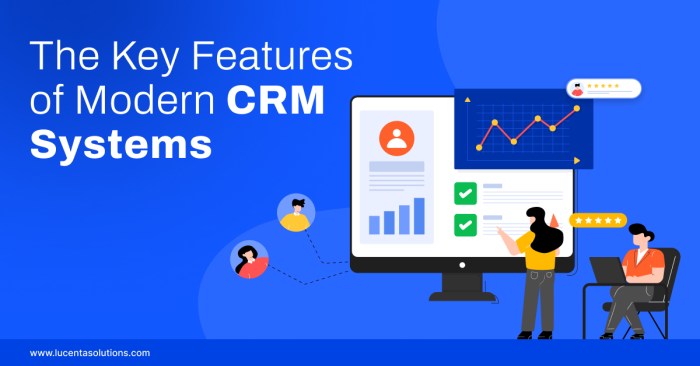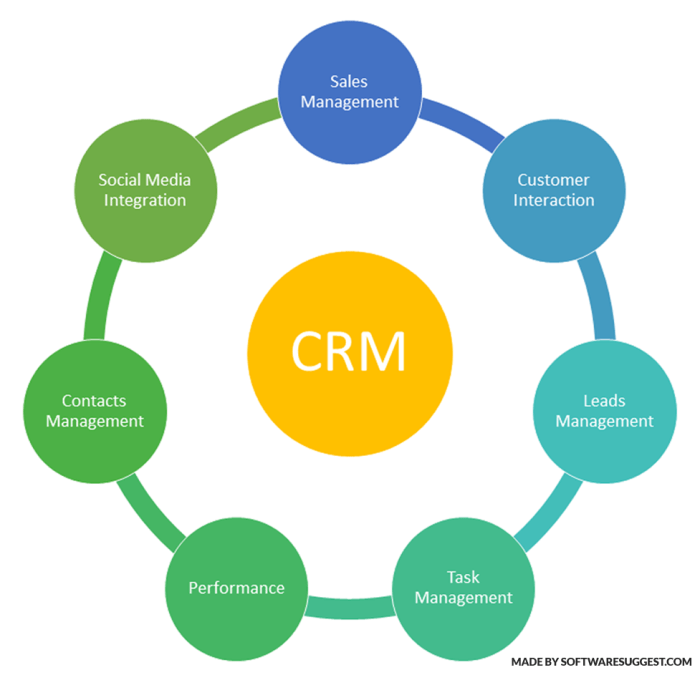Key features of CRM platforms at the forefront, this paragraph opens a window to an amazing start and intrigue, inviting readers to embark on a storytelling idntimes author style filled with unexpected twists and insights.
CRM platforms play a crucial role in modern business operations by providing a centralized system for managing customer relationships effectively. Understanding the key features of these platforms is essential for enhancing customer interactions and streamlining data management processes.
Overview of CRM Platforms

CRM platforms, or Customer Relationship Management platforms, are software tools designed to help businesses manage interactions with current and potential customers. These platforms centralize customer data, automate sales, marketing, and customer service processes, and provide insights to improve customer relationships.
Primary Purpose of CRM Platforms
The primary purpose of CRM platforms in businesses is to enhance customer relationships by providing a 360-degree view of customer interactions and preferences. By consolidating customer data from various touchpoints, businesses can personalize communication, tailor marketing strategies, and improve customer satisfaction and loyalty.
Do not overlook the opportunity to discover more about the subject of Effective CRM strategies.
Benefits of Using CRM Platforms for Customer Relationship Management
- Improved Customer Relationships: CRM platforms help businesses understand customer needs and preferences, enabling personalized interactions and better customer service.
- Increased Efficiency: Automation of repetitive tasks and workflows streamlines processes, allowing employees to focus on high-value activities.
- Enhanced Sales and Marketing: CRM platforms provide insights into customer behavior and trends, helping businesses target the right audience with relevant offers and campaigns.
- Better Decision-Making: Access to real-time data and analytics empowers businesses to make informed decisions and drive growth strategies based on customer insights.
- Scalability: CRM platforms can adapt to the evolving needs of businesses, from small startups to large enterprises, ensuring flexibility and scalability.
Key Features of CRM Platforms

CRM platforms offer a range of essential features that help businesses effectively manage customer relationships and improve overall customer satisfaction. These key features play a crucial role in streamlining communication, automating processes, and providing valuable insights for better decision-making.
1. Contact Management
- Allows businesses to store and organize customer contact information in one centralized location.
- Enables easy access to customer details, communication history, and preferences.
- Improves personalized interactions and targeted marketing efforts.
2. Lead Management
- Tracks and manages potential leads throughout the sales pipeline.
- Automates lead assignment, follow-ups, and nurturing processes.
- Helps prioritize leads based on their likelihood to convert, improving sales efficiency.
3. Sales Automation
- Automates sales tasks such as quote generation, order processing, and invoicing.
- Streamlines the sales process, reducing manual effort and improving accuracy.
- Provides real-time sales insights and performance metrics.
4. Customer Service and Support
- Centralizes customer support requests and ticketing systems.
- Enables multi-channel support through email, phone, chat, and social media.
- Automates support workflows and escalations, ensuring timely responses.
5. Reporting and Analytics
- Generates detailed reports on sales performance, customer engagement, and marketing campaigns.
- Provides actionable insights for strategic decision-making and process optimization.
- Tracks key performance indicators (KPIs) to measure the effectiveness of CRM efforts.
6. Integration Capabilities
- Integrates with other business systems such as marketing automation, ERP, and e-commerce platforms.
- Enables seamless data flow and synchronization across different departments.
- Improves overall efficiency by eliminating data silos and manual data entry.
Implementation of CRM Platforms
Implementing a CRM platform in a business involves a series of steps to ensure a smooth and successful integration. From setting up the system to training employees, each stage is crucial for maximizing the benefits of CRM software.
Steps for Implementing a CRM Platform, Key features of CRM platforms
- Assess Business Needs: Identify the specific requirements and goals of your business to choose the most suitable CRM platform.
- Select the Right CRM Software: Research and select a CRM platform that aligns with your business objectives and budget.
- Customize for Your Business: Configure the CRM system to match your workflows, data fields, and reporting requirements.
- Data Migration: Transfer existing customer data into the CRM platform accurately to ensure seamless operations.
- Integration with Existing Systems: Integrate the CRM software with other business tools for a unified data environment.
- Training and Adoption: Provide comprehensive training to employees on how to use the CRM platform effectively.
- Continuous Monitoring and Improvement: Regularly monitor the CRM system’s performance and make necessary adjustments to enhance efficiency.
Best Practices for Configuring and Customizing CRM Platforms
- Start with the End in Mind: Define your business goals and objectives before customizing the CRM platform to ensure alignment.
- Keep it Simple: Avoid unnecessary customizations that can complicate the system and make it harder for users to navigate.
- Consult with Users: Involve employees from different departments in the customization process to gather valuable insights and feedback.
- Utilize Automation: Implement automation features to streamline repetitive tasks and improve productivity.
- Regularly Review and Update: Continuously review the CRM platform’s configuration to adapt to changing business needs and optimize performance.
Tips for Training Employees on Using CRM Platforms Effectively
- Provide Comprehensive Training: Offer hands-on training sessions and resources to help employees understand the CRM platform’s features and functionalities.
- Assign Champions: Designate CRM champions within each department to serve as experts and support their colleagues in using the system.
- Encourage Adoption: Communicate the benefits of using the CRM platform to employees and incentivize engagement to drive adoption rates.
- Offer Ongoing Support: Provide continuous support through FAQs, help guides, and a dedicated IT helpdesk to address any user issues or questions.